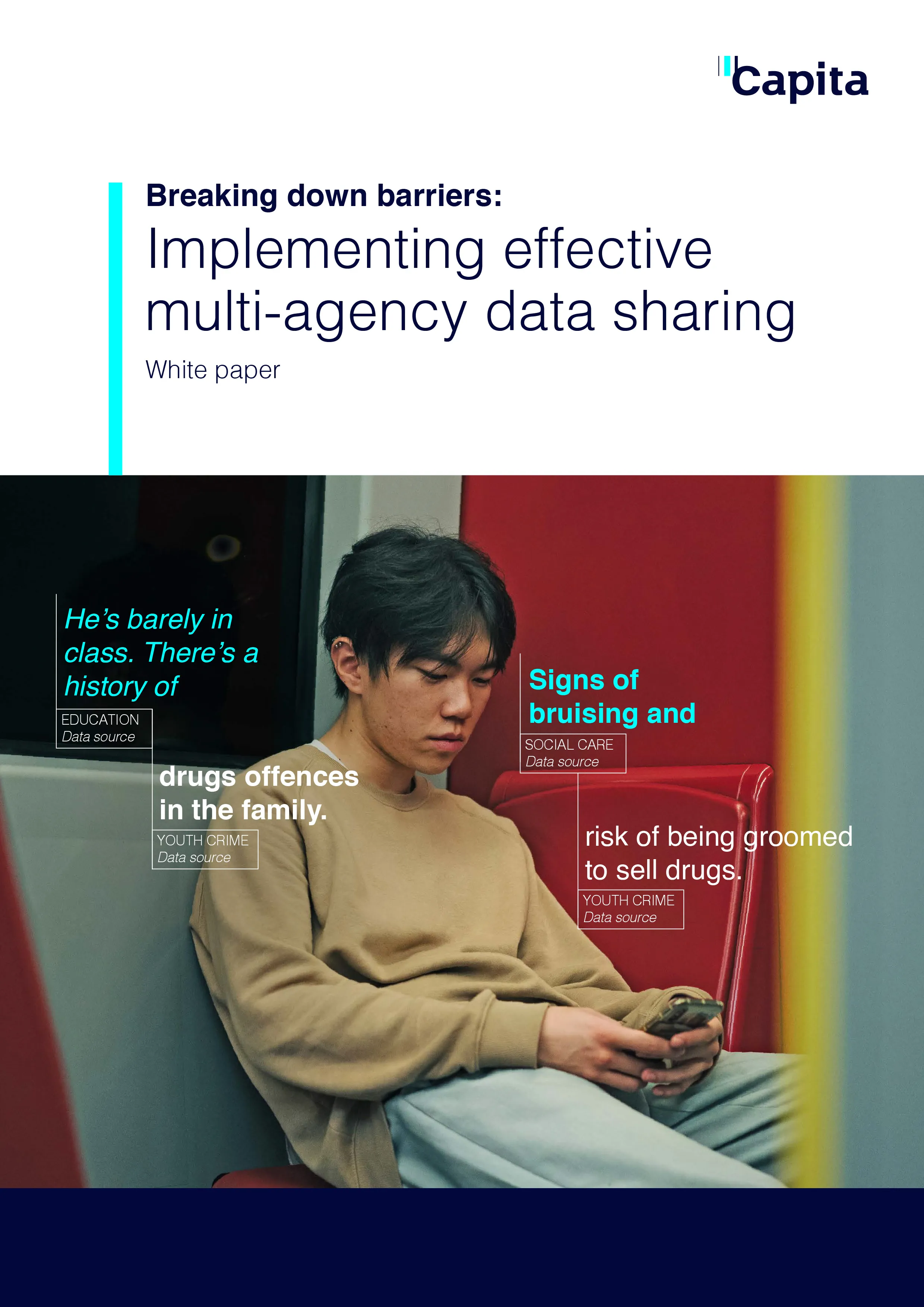Savings programme spotlight – pharmacy procurement
We look at the opportunities for procurement teams to make savings in pharmacy spend.
Read moreDespite robust legislation and decades of policy commitment, many public sector organisations still face practical challenges when it comes to sharing data effectively across agencies.
This white paper explores why multi-agency data sharing (MADS) can be difficult in practice — drawing on insights from serious case reviews, statutory duties, and frontline experiences. It highlights how siloed systems, legacy IT infrastructure, differing risk assessments, and professional caution can sometimes hinder timely and coordinated responses. Yet the need for a secure, proactive, and joined-up approach to data sharing has never been clearer.
Inside, we examine:
The benefits of multi-agency data sharing (MADS) are significant: earlier interventions, reduced duplication, more precise resource allocation, greater professional confidence, and a measurable shift from reactive to preventive practice. By aligning people, processes, and technology, MADS offers a clear path to safer communities, more resilient services, and better outcomes for those most at risk.
Download the white paper to explore practical steps and key insights for improving safeguarding and public protection through effective multi-agency data sharing:


Lead for Justice & Policing, Capita
Lead for Justice & Policing, Capita
Dave brings extensive experience of operational policing, organisational remodelling and digital transformation to his role at Capita. Prior to joining Capita, he served for 29 years in a variety of policing roles, concluding his policing career as the operational lead for Police Scotland’s Digitally Enabled Policing Team with responsibility for designing and delivering their new national information management platform (COS).

KPM FRSA, Business Consultant, Justice & Policing, Capita
KPM FRSA, Business Consultant, Justice & Policing, Capita
Stan is a seasoned business consultant at Capita, specialising in multi-agency data sharing and collaboration within the justice and policing sector. With extensive global experience in operational policing and partnerships for community safety, health, and wellbeing, Stan also is a Professor of Policing Practice. Before joining Capita, Stan served for 30 years in neighbourhood, local, regional, national, and international senior police roles. He finished his policing career as the Director of the Thames Valley Violence Reduction Unit, leading data collaboration nationally.

We look at the opportunities for procurement teams to make savings in pharmacy spend.
Read more
We look at the opportunities for procurement teams to make savings in pharmacy spend.
Read more
Capita shares their expertise on how financial services, TMT, retail, and utilities are addressing 2026’s CX challenges and opportunities.
Read more
In 2026, CX in the UK, Ireland, and Europe blends AI, personalisation, and trust, balancing automation with human empathy and meeting sector-specific needs.
Read more
Share